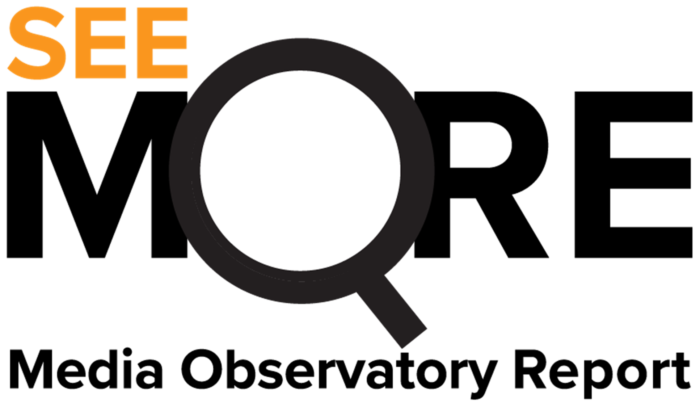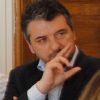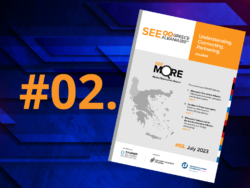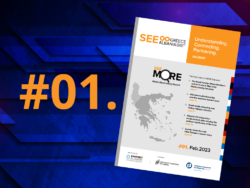The Media Observatory Reports (MORE) are part of the multilayered project ALGREE – Albania-Greece: Understanding. Connecting. Partnering. implemented by the South-East Europe Programme of the Hellenic Foundation for Foreign & European Policy (ELIAMEP), and powered by the Open Society Foundation for Albania (OSFA) and the Friedrich Naumann Foundation for Freedom Greece and Cyprus (FNF).
About
The Media Observatory Reports (MORE) are the fruit of systematic monitoring of key Greek and Albania media. We monitor, analyse and present in succinct reports the impact of Albanian media reporting of Greece and Greek media reporting of Albania as well as the coverage of issues of common interest.
The method
The team of ALGREE collects and analyzes stories, identifying key cases of high interest due to the importance of the topics, or because of the influence on audiences as a result of the sensitivity of issues or the emotional language used. The team conducts background research using a rigorous methodology as well as official and unofficial information channels. It establishes the true dimension of events, beyond stereotypes, fake news and nationalist propaganda. The team also offers brief analyses on the ways in which the media choose to feed the public discourse with misconceptions and negative narratives, thus generating distrust between the two societies.
How do we make a difference?
The ambition of MORE is to filter out the noise that typically accompanies the media stories on the unresolved bilateral issues in both Albania and Greece. It aims to become a stimulus of reflection for journalists, opinion makers and other stakeholders to ponder the missed opportunities in the public sphere of the two countries.
The reports offer a well-balanced mix of political insight and fact-driven analysis that gives crucial insights on how the media are missing opportunities to play a constructive role and help create a more healthy political discourse. Better reporting could facilitate understanding of each side’s sensitivities and open avenues for connecting the two societies, thus, enabling a genuine, trusting partnering of Greece and Albania, in the region and within the European Union.
Accordingly, MORE provide for each case/story:
- a short background;
- a short qualitative analysis of certain media stories;
- a brief account of the actual events which were reported incorrectly;
- a potential alternative coverage, an assessment of the political significance of the media choices and their effect on public perceptions ;
- key takeaways vis-à-vis the political and societal impact of the media coverage.
Who we are:
Project lead and academic coordinator: Ioannis Armakolas
Media analyst and MORE editor: Celik Rruplli
Research and editorial assistant: Ioannis Paparizos
South-East Europe Programme Administrator: Alexandros Koutras
Publications:
1st issue of MORE: (English, Greek, Albanian) The first issue is the fruit of a monitoring period between May and September 2022 and features:
- The Greek Foreign Minister’s visit to Tirana in May 2022: Media missing the point
- Albanian media obsessing over the maritime borders issue
- Greek media obsessing over Turkey–Albania relations
- Albania’s EU integration: media on both sides missing the political significance of the issue
- Society shows the way: Elina Tzengko’s success story.
2nd issue of MORE: (English, Greek, and Albanian).The second issue is the outcome of a monitoring period between December 2022 – February 2023 and features:
- Mitsotakis’ first visit to Albania: unfortunate statements, apologies, and the bad weather
- Dendias in Tirana once again: Turkey as the third factor in Greek-Albanian relations
- Mitsotakis’ historic visit to the minority in Albania: the minority as a “bridge of friendship”










